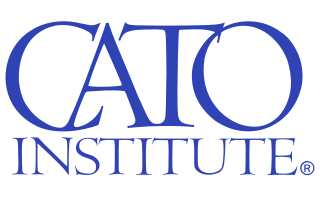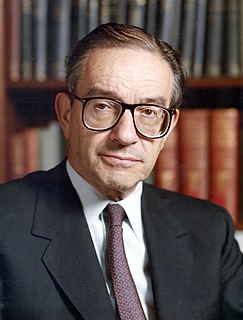
Joseph Alois Schumpeter was an Austrian political economist. He was born in Moravia, and briefly served as Finance Minister of German-Austria in 1919. In 1932, he emigrated to the United States to become a professor at Harvard University, where he remained until the end of his career, and in 1939 obtained American citizenship.

Milton Friedman was an American economist and statistician who received the 1976 Nobel Memorial Prize in Economic Sciences for his research on consumption analysis, monetary history and theory and the complexity of stabilization policy. With George Stigler and others, Friedman was among the intellectual leaders of the Chicago school of economics, a neoclassical school of economic thought associated with the work of the faculty at the University of Chicago that rejected Keynesianism in favor of monetarism until the mid-1970s, when it turned to new classical macroeconomics heavily based on the concept of rational expectations. Several students, young professors and academics who were recruited or mentored by Friedman at Chicago went on to become leading economists, including Gary Becker, Robert Fogel, Thomas Sowell and Robert Lucas Jr.

Murray Newton Rothbard was an American heterodox economist of the Austrian School, economic historian and political theorist. Rothbard was a founder and leading theoretician of anarcho-capitalism, a staunch advocate of historical revisionism and a central figure in the 20th-century American libertarian movement. He wrote over twenty books on political theory, revisionist history, economics, and other subjects.

The Cato Institute is an American libertarian think tank headquartered in Washington, D.C. It was founded as the Charles Koch Foundation in 1974 by Ed Crane, Murray Rothbard, and Charles Koch, chairman of the board and chief executive officer of Koch Industries. In July 1976, the name was changed to the Cato Institute. Cato was established to have a focus on public advocacy, media exposure and societal influence. According to the 2017 Global Go To Think Tank Index Report, Cato is number 15 in the "Top Think Tanks Worldwide" and number 10 in the "Top Think Tanks in the United States".

Alan Greenspan is an American economist who served five terms as the 13th chair of the Federal Reserve in the United States from 1987 to 2006. He works as a private adviser and provides consulting for firms through his company, Greenspan Associates LLC. First appointed Federal Reserve chairman by President Ronald Reagan in August 1987, he was reappointed at successive four-year intervals until retiring on January 31, 2006, after the second-longest tenure in the position.

Bryan Douglas Caplan is an American economist and author. Caplan is a professor of economics at George Mason University, research fellow at the Mercatus Center, adjunct scholar at the Cato Institute, and former contributor to the Freakonomics blog; he also publishes his own blog, EconLog. He is a self-described "economic libertarian". The bulk of Caplan's academic work is in behavioral economics and public economics, especially public choice theory.

Paul Robin Krugman is an American economist, professor, and columnist. He is a professor of economics at the Graduate Center of the City University of New York, and a columnist for The New York Times. In 2008, Krugman was awarded the Nobel Memorial Prize in Economic Sciences for his contributions to New Trade Theory and New Economic Geography. The Prize Committee cited Krugman's work explaining the patterns of international trade and the geographic distribution of economic activity, by examining the effects of economies of scale and of consumer preferences for diverse goods and services.

"Starving the beast" is a political strategy employed by American conservatives to limit government spending by cutting taxes, in order to deprive the federal government of revenue in a deliberate effort to force it to reduce spending.

Nicholas Gregory Mankiw is an American macroeconomist who is currently the Robert M. Beren Professor of Economics at Harvard University. Mankiw is best known in academia for his work on New Keynesian economics.

Anatole Kaletsky is an economist and journalist based in the United Kingdom. He has written since 1976 for The Economist, The Financial Times and The Times of London before joining Reuters and The International Herald Tribune in 2012. He has been named Newspaper Commentator of the Year in the BBC's What the Papers Say awards, and has twice received the British Press Award for Specialist Writer of the Year.
Bruce Reeves Bartlett is an American historian and author. He served as a domestic policy adviser to Ronald Reagan and as a Treasury official under George H. W. Bush. Bartlett also writes for the New York Times Economix blog.

Ben Shalom Bernanke is an American economist at the Brookings Institution who served two terms as the 14th Chair of the Federal Reserve, from 2006 to 2014. During his tenure as chair, Bernanke oversaw the Federal Reserve's response to the late-2000s financial crisis, for which he was named the 2009 Time Person of the Year. Before becoming Federal Reserve chair, Bernanke was a tenured professor at Princeton University and chaired the department of economics there from 1996 to September 2002, when he went on public service leave.
Raveendra Nath "Ravi" Batra is an Indian-American economist, author, and professor at Southern Methodist University. Batra is the author of six bestselling books, two of which appeared on The New York Times Best Seller list, with one reaching #1 in late 1987. His books center on his idea that financial capitalism breeds excessive inequality and political corruption which inevitably succumbs to financial crisis and economic depression. In his works, Batra proposes an equitable distribution system known as Progressive Utilization Theory (PROUT) as a means to not only ensure material welfare but also to secure the ability of all to develop a full personality.

The Shock Doctrine: The Rise of Disaster Capitalism is a 2007 book by the Canadian author and social activist Naomi Klein. In the book, Klein argues that neoliberal free market policies have risen to prominence in some developed countries because of a deliberate strategy of "shock therapy". This centers on the exploitation of national crises to establish controversial and questionable policies, while citizens are too distracted to engage and develop an adequate response, and resist effectively. The book suggests that some man-made events, such as the Iraq War, were undertaken with the intention of pushing through such unpopular policies in their wake.
Socialism for the rich and capitalism for the poor is a classical political-economic argument asserting that, in advanced capitalist societies, state policies assure that more resources flow to the rich than to the poor, for example in the form of transfer payments.

David Leonhardt is an American journalist and columnist. Beginning April 30, 2020, he writes the daily "The Morning" newsletter for The New York Times. He also contributes to the paper's Sunday Review section. His column previously appeared weekly in The New York Times. He previously wrote the paper's daily e-mail newsletter, which bore his own name. As of October 2018, he also co-hosted a weekly Opinion podcast titled "The Argument", with Ross Douthat and Michelle Goldberg.

Luigi Zingales is a finance professor at the University of Chicago Booth School of Business and the author of two widely-reviewed books. His book Saving Capitalism from the Capitalists (2003) is a study of "relationship capitalism". In A Capitalism for the People: Recapturing the Lost Genius of American Prosperity (2012), Zingales "suggests that channeling populist anger can reinvigorate the power of competition and reverse the movement toward a 'crony system'."

A Failure of Capitalism: The Crisis of '08 and the Descent into Depression is a 2009 book by the economist Richard Posner. The text was initially published on May 1, 2009 by Harvard University Press. Posner criticizes President George W. Bush and his administration's policies and the response to the fiscal crisis, and moves away from his past well-known advocacy of free-market capitalism. The book has been primarily noted not for his criticism of progressive government policies, but rather his critique of laissez-faire capitalism and its ideologues.
In monetary policy of the United States, the term Fedspeak is what Alan Blinder called "a turgid dialect of English" used by Federal Reserve Board chairmen in making wordy, vague, and ambiguous statements. The strategy, which was used most prominently by Alan Greenspan, was used to prevent financial markets from overreacting to the chairman's remarks. The coinage is an intentional parallel to Newspeak of Nineteen Eighty-Four, a novel by George Orwell.
The Great Recession in the United States was a severe financial crisis combined with a deep recession. While the recession officially lasted from December 2007 to June 2009, it took many years for the economy to recover to pre-crisis levels of employment and output. This slow recovery was due in part to households and financial institutions paying off debts accumulated in the years preceding the crisis along with restrained government spending following initial stimulus efforts. It followed the bursting of the housing bubble, the housing market correction and subprime mortgage crisis.















